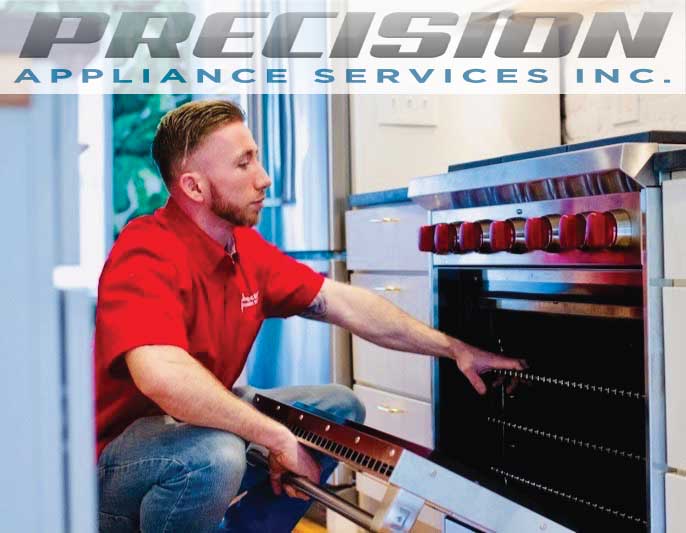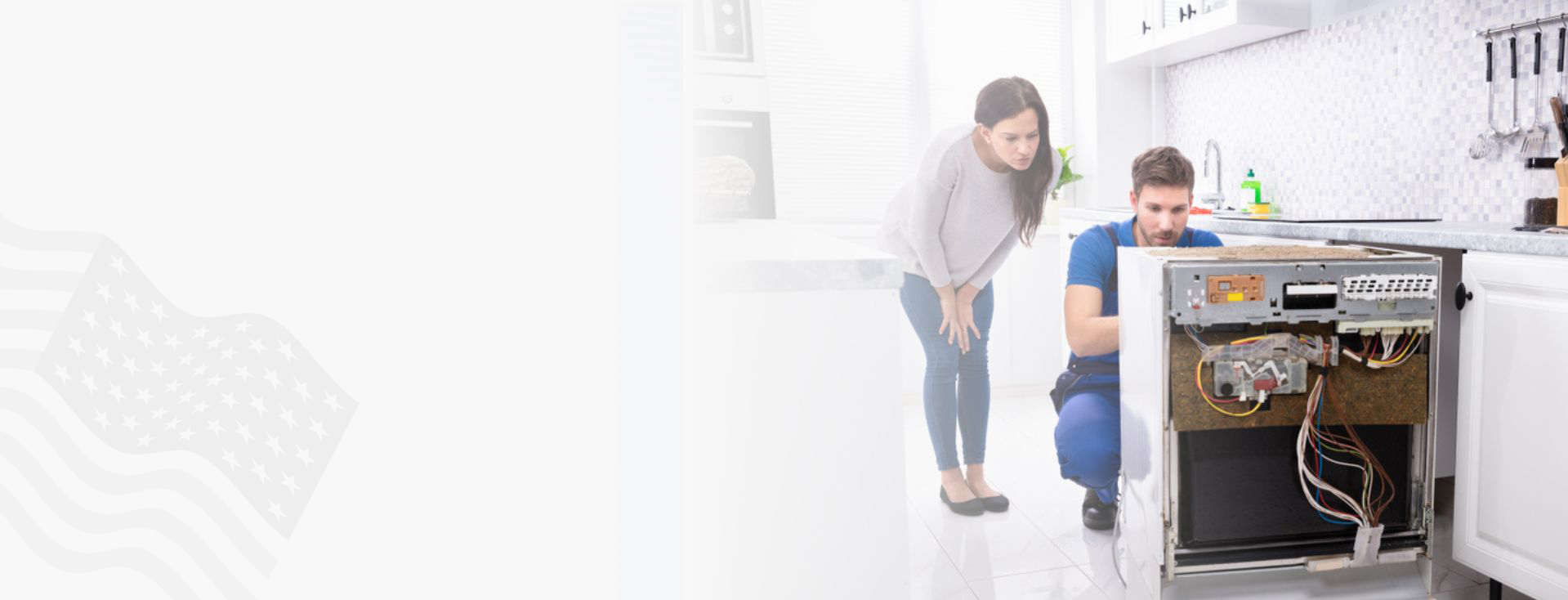The Ultimate Overview to Understanding Home Appliance Fixing at Home
When your refrigerator quits cooling down or your oven refuses to warmth, it can really feel overwhelming. Comprehending home appliance fixing at home can save you money and time. You'll learn to recognize symptoms, make use of essential devices, and adhere to a systematic troubleshooting process. But before you start, there are critical safety preventative measures you need to take into consideration. What are one of the most usual troubles, and how can you repair them? Let's explore the basics.
Usual Home Appliance Problems and Their Signs and symptoms
When your devices begin breaking down, it's vital to recognize the indications at an early stage. Disregarding them can bring about larger concerns and pricey repairs. If your fridge isn't cooling down correctly, you may discover warm spots or condensation creating. This can indicate a falling short compressor or an obstructed vent.Your dishwashing machine might show troubles with dirty recipes or uncommon noises throughout cycles. If you hear grinding or clanking, it's time to investigate.A washing machine that won't rotate or drain can leave you with soaked laundry, recommending a clogged drain or a malfunctioning pump.Lastly, if your stove's temperature seems off or it takes forever to pre-heat, you could be dealing with a malfunctioning thermostat. By staying alert to these signs and symptoms, you can resolve issues prior to they rise into major repair work.
Necessary Devices for Appliance Fixing
When you're tackling device repair work in the house, having the right devices is crucial. Standard hand tools like screwdrivers and pliers will certainly help you dismantle and deal with numerous devices, while electric testing gadgets guarantee you're functioning safely with circuitry. Let's discuss what you require to begin on your fixing journey.
Basic Hand Tools
Having the right tools is crucial for effective device repair in the house. Beginning with a trusted screwdriver collection, including both flathead and Phillips types, as screws are usual in home appliance setting up. Pliers are additionally important; they aid with gripping, turning, and cutting cords or small elements. A pair of needle-nose pliers can get to difficult situations quickly. You'll require a great adjustable wrench for tightening up or loosening up nuts and bolts. An energy blade comes in handy for cutting through packaging or insulation. Do not fail to remember a strong workbench or surface area to safely arrange your tools and parts. With these basic hand tools, you'll be well-prepared to take on most home appliance repair work that come your way.
Electric Screening Instruments
Along with fundamental hand devices, electric testing gadgets play a vital function in appliance repair. These tools help you detect electrical issues and guarantee home appliances work securely. A multimeter is important; it gauges voltage, present, and resistance, allowing you to identify problems swiftly. A non-contact voltage tester is one more essential, allowing you identify real-time cords without making direct call, boosting your safety. Clamp meters are fantastic for gauging present flow in cords without separating them, conserving you time and effort. In addition, circuit testers can quickly check if outlets are operating appropriately. By making use of these gadgets, you'll improve your troubleshooting process and improve your repair work abilities, making appliance maintenance a great deal easier.
Step-by-Step Guide to Diagnosing Appliance Issues
When your appliance acts up, it can be aggravating, however detecting the problem doesn't need to be overwhelming. You'll find out to identify typical problems and use effective fixing strategies. Let's stroll with the steps to get your appliance back in working order.
Typical Home Appliance Problems

Troubleshooting Methods Discussed

Repairing Significant Kitchen Area Home Appliances: A Closer Look
Have you ever wondered exactly how to tackle common problems with your cooking area home appliances? Repairing significant kitchen home appliances like fridges, ovens, and dishwashers can be easier than you think. Begin by recognizing the trouble-- whether it's a refrigerator not cooling down or an oven that won't heat. Often, a simple reset or examining the source of power can address the issue.For fridges, tidy the condenser coils and check the door seals. If your oven's not home heating, examine the home heating component and thermostat. Dish washers might simply require a clean filter or a reset to obtain them back in action. Constantly disconnect the appliance before diving into repairs to guarantee your safety.Don' t forget to get in touch with the customer manual for specific troubleshooting tips connected to your design. With a little bit of patience and the right tools, you can with confidence deal with home appliance fixings and save money while doing so!

Troubleshooting Washing Devices: Tips and Techniques
When your washing devices begin breaking down, it can really feel overwhelming, however troubleshooting them does not have to be a trouble. Begin by checking the power supply. Verify the appliance is connected in and the outlet is working. Next off, inspect the door or cover button; a damaged switch can protect against the equipment from operating.For washers, if it's not rotating, look for unbalanced loads. Redistributing the clothing could fix the issue. If your dryer isn't home heating, clean the lint filter and inspect the air vent for blockages.Listen for uncommon sounds; they can indicate a trouble. If your home appliance is dripping, inspect the pipes for cracks or loose links. File any kind of mistake codes presented on electronic displays, as they can lead you in determining the issue. Speak with the customer guidebook for details repairing suggestions connected to your design.
Safety And Security Precautions to Take During Fixes
Prior to you begin any type of device repair work, it's vital to focus on safety to stop crashes or injuries. First, disconnect the home appliance or shut off the circuit breaker to assure no power reaches it while you function. Use insulated devices to minimize the danger of electrical shock. Use security goggles and gloves to secure yourself from sharp edges or debris (Fixes washers and dryers Oro valley Dependable Appliance Repair).Make particular your workspace is clean and well-lit, so you can see what you're doing. Keep kids and pet dogs far from the area to stay clear of disturbances and prospective threats. If you're handling gas appliances, be extra mindful; look for leaks prior to proceeding.Take your time, and do not hurry through repair services. If you really feel uncertain regarding any type of action, it's far better to pause and study than to guess. Adhering to these safety measures will certainly help develop a safer atmosphere for your do it yourself home appliance repair task
When to Call a Specialist for Aid
Exactly how do you understand if it's time to hire an expert for appliance fixings? If you have actually tried standard troubleshooting without success, it's a clear indicator. For example, if your appliance still won't start or shows unusual noises after resetting it, don't think twice to seek specialist help.When you see leakages, smoke, or melting scents, focus on safety and security and call a pro right away. These problems can result in even more substantial damages or pose threats to your home.Also, if your home appliance is under guarantee, speaking to a professional is often the finest path. They can assure that repair services will not void your warranty, saving you cash in the lengthy run.Finally, if you're unsure or uneasy with intricate repairs, it's important to leave it to the professionals. Keep in mind, taking on complex concerns without the right expertise can lead to costly errors. Trust fund a specialist when in question!
Frequently Asked Inquiries
How Can I Stop Home Appliance Troubles in the Future?
To stop appliance problems in the future, you must perform routine upkeep, check for damage, tidy filters, and prevent overloading. Staying proactive will assist prolong their life-span and maintain them running smoothly.
What Are the Most Usual DIY Appliance Repair Service Mistakes?
You might forget security precautions, miss fixing steps, or utilize wrong tools when attempting do it yourself home appliance repair work. Rushing the process or overlooking producer guidelines can cause more considerable concerns and pricey mistakes. Keep person and informed!
How Do I Know if a Component Needs Replacement?
You can inform if a part requires replacement by looking for unusual sounds, leaks, or irregular performance. If the home appliance struggles to run correctly or reveals noticeable damages, it's most likely time for a replacement.
Can I Make Use Of Generic Components for Appliance Services?
Yes, you can utilize common components for device fixings, but ascertain they work - Dependable Refrigeration & Appliance Repair Service Dryer repair near me. Generic components may save you money, but they might influence performance or durability, so consider your choices meticulously before making a choice
What Warranties Cover Home Appliance Services?
Many device warranties cover repair work for producing issues, however they usually leave out damages from misuse. Inspect your guarantee terms carefully, as some might call for making use of qualified professionals and initial components for coverage to continue to be legitimate.